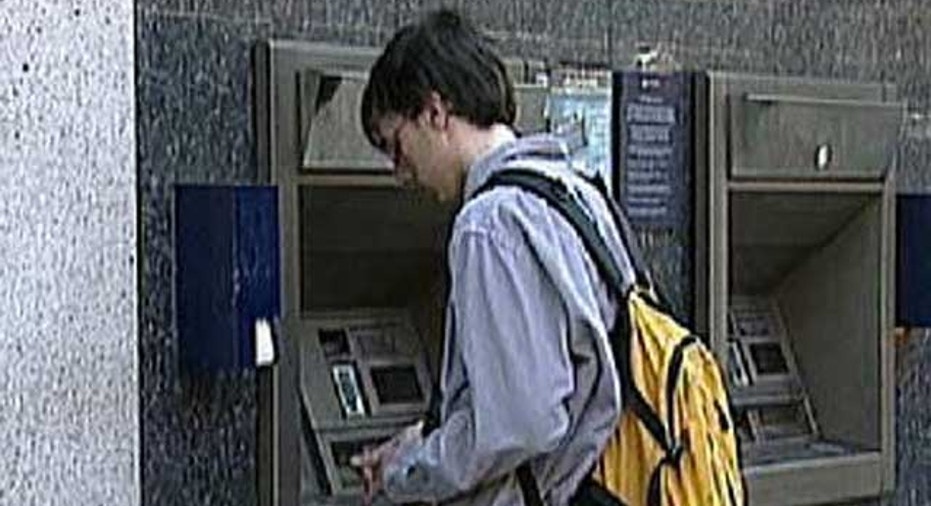Five Sneaky Bank Fees and How to Catch Them

Heard of an empty envelope bank fee?
That and other creative bank fees, such as one for account balance inquires or online imaging, have been creeping into account statements in recent years. And anyone can get socked with them, including online customers or businesses.
Beating bank fees
Banks are looking for new ways to make extra money, says Suzanne Martindale, a staff attorney for Consumers Union. As a result, consumers must be more vigilant about bank fees, since types and amounts aren't heavily regulated by the government, she says. Overdraft fees are currently the only ones that you must opt into and that the federal government regulates.
Still, many bank fees can be easily avoided, says Nessa Feddis, vice president, senior federal counsel and retail banking expert for the American Bankers Association. For example, to avoid empty bank envelope fees, make sure you've included some money in the envelope before sending.
"Simply, be careful," she says.
Money-losing accounts
There are lots of bank fees to sidestep. According to a study released this year by the Pew Safe Checking in the Electronic Age Project, the number of bank fees range from a high of 48 at one bank to four at another. Amounts charged were 10 cents to $125.
Why so many fees? Checking accounts are money-losers for banks, especially big banks. Annual checking costs can run between $250 and $300 per account, according to a 2010 report by financial services research firm Celent. Many banks never recoup this money, hence the additional fees to cover costly overhead.
Martindale says that's why oddball fees won't change anytime soon since there's no prohibition on what can be charged.
Watch for these fees
That said, here are some curious bank fees to flag.
Human teller fee. Online banking customers are most likely to get socked with this bank fee. Take one major bank's free e-banking checking account. When you use online paperless statements or make your deposits or withdraw money at ATMs, the account is free. Use a teller, and you'll shell out $8.95 in monthly fees. One small bank charges its online banking customers $10 for manual withdrawals.
"Those fees are pretty rare," says Feddis. "And, you can always choose another account. Banks typically offer consumers different checking options based on their habits."
Returned mail fee. Consumers get dinged when bank envelopes, such as an account notice, are returned to them. For example, one bank charges $6 for returned mail. And a second bank has a $5 fee for undeliverable bank statements.
They're imposed for time and money spent, adds Feddis. Empty envelopes trigger additional fraud protection research to determine why they were returned, she says.
Charges for redeeming rewards points. Some banks are starting to charge customers who redeem credit or debit card rewards points. For example, one small bank charges $4 fees for debit card redemptions, along with a yearly program fee.
These are handling fees, Feddis says. To avoid them, shop for rewards programs with no bank fees. "It's a very competitive market, with lots of choices," she says,
Early account closure fees. Banks began imposing these fees as an obstacle, after people began moving their accounts last year, Martindale says. The typical window for early account closing fees is 90 to 180 days after opening a new checking account. For example, one bank charges $25 if you close a new account within 180 days. At a second bank, the fee is $25 within 90 days.
Cash deposit fees. Many banks don't charge fees for using machines that count coins that are dumped into them. However, some big banks are charging customers who deposit lots of cash. At one major bank, there's no fee for the first $10,000 deposited. After that, you'll pay 20 cents per $100.
Large cash deposits require extra manpower, Feddis says. Reports must be filed to comply with anti-money-laundering rules, she says.
Weeding out extra bank fees
The trick to avoiding extra fees is reading bank disclosure boxes, says Susan Weinstock, director of Pew's Safe Checking in the Electronic Age Project. "However, fee schedules don't always tell you what you need to know," she says. That's because the average fee disclosure runs 69 pages. "So, it's hard to comparison shop among banks," she says.
So, Weinstock recommends looking for banks with simple disclosure boxes. Fifteen banks and credit unions now offer them, including big ones such as Bank of America, Chase, Citibank, and Wells Fargo. To see the complete list, go to the PewStates.org site and type in "disclosure box."
It's important to avoid banks with long laundry lists of fees, Martindale says. One tip for dodging them: Small banks have lower overhead than big banks, translating into fewer bank fees. And credit unions don't have to pay a portion of their profits to shareholders, giving them leeway to keep fees low.
"Big banks rely on fees the most," she says.
Also, ask that the bank waive uncommon new fees that you've just discovered by asking a bank manager. "They'll usually waive fees the first time," Feddis says.
Martindale says if they won't, consider moving your money.



















